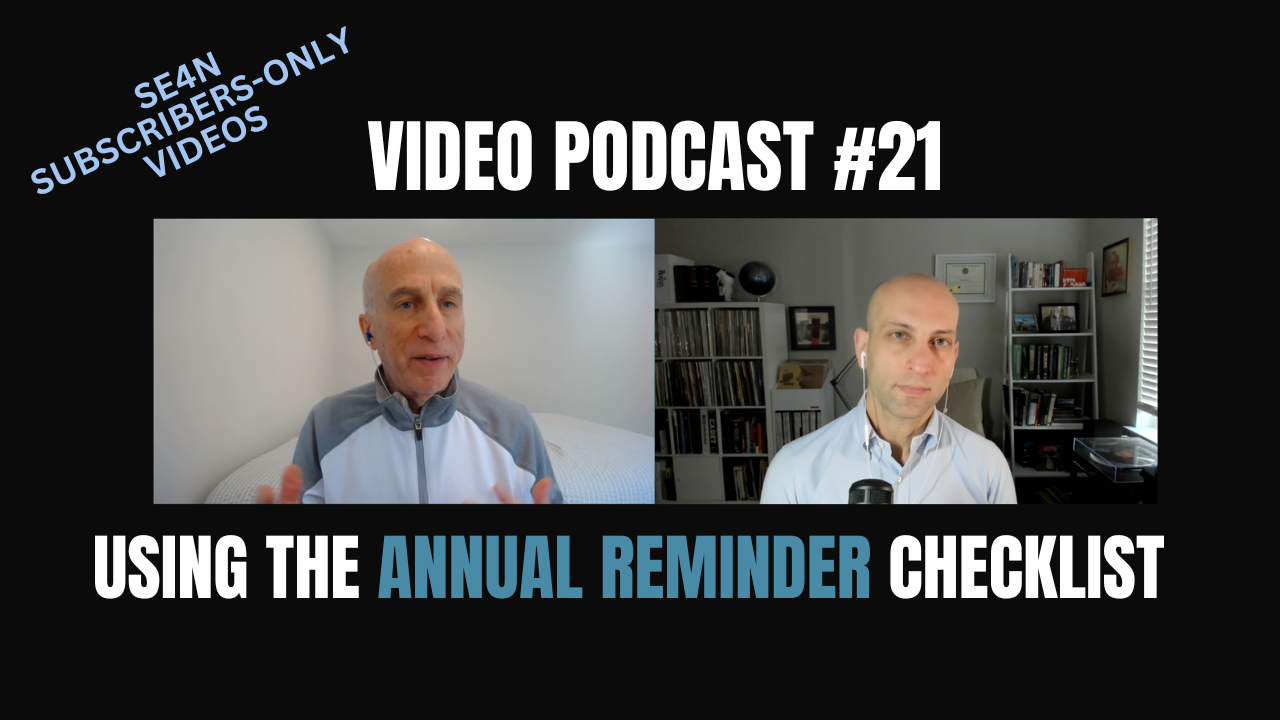
Blog.
Most Recent Posts
![TEMPLATE: Donor Acknowledgement Letters for Newly Formed Organizations [SUBSCRIBERS-ONLY]](https://images.squarespace-cdn.com/content/v1/5e6ccadfb4659c1d51df14d5/e0214792-50d4-4a57-8986-c23010a18b6c/mediamodifier-R35zUpA9Mbw-unsplash.jpg)
TEMPLATE: Donor Acknowledgement Letters for Newly Formed Organizations [SUBSCRIBERS-ONLY]
These donor acknowledgment letter templates are intended for newly formed organizations that receive donations prior to getting approval of 501(c)(3) status, including an initial acknowledgment with an explanation of the organization’s pending status, and follow-up letters updating the donor once the organization’s tax-exempt status is official. The included sample language is intended to generally satisfy basic IRS requirements for the most common donation scenarios, including cash contributions, non-cash contributions, as well as cash and non-cash gifts that are treated as quid pro quo contributions.

VIDEO Q&A for Subscribers: December 2025
Ben and Mike answer questions from subscribers about documenting Executive Director performance in committee minutes, whether tax-exempt status can be transferred to another organization, addressing audit findings related to handling of restricted funds, how new nonprofits should fill out Form W-9, and whether new nonprofits should file a Form 990 for the first short tax year.

VIDEO Q&A for Subscribers: November 2025
Ben and Mike answer questions from subscribers about best practices in structuring and approving executive bonuses, updating cost allocation methods and the importance of time sheets, cash management for organizations with healthy operating reserves, and managing the costs of insurance.
![TEMPLATE: Unanimous Consent Resolution of Nonprofit Board [SUBSCRIBERS-ONLY]](https://images.squarespace-cdn.com/content/v1/5e6ccadfb4659c1d51df14d5/bb6388c1-e38c-4fef-a5f3-48bb76a6a5a7/pexels-eva-bronzini-8058548.jpg)
TEMPLATE: Unanimous Consent Resolution of Nonprofit Board [SUBSCRIBERS-ONLY]
This template provides a framework for drafting unanimous written consent resolutions in lieu of a Board of Directors meeting. This template is intended for situations in which Board action on a matter is necessary, and taking action through unanimous written approval would be more timely, practical, and/or feasible than waiting until the Board meeting is convened.

Making an Investment in Finance Department Staff Training
Nonprofit organizations rely heavily on their finance department staff. Their services are critical to day-to-day operations and essential to safeguarding and stewarding the allocation of financial assets to meet the mission of the organization. Investing in improving and increasing finance department staff skills, capacity, and professional development are actions that “speak louder than words,” and will improve operations and performance while demonstrating a culture of staff appreciation.
![TEMPLATE: Minutes for First Meeting of Nonprofit Board [SUBSCRIBERS-ONLY]](https://images.squarespace-cdn.com/content/v1/5e6ccadfb4659c1d51df14d5/63bc051d-b30f-4e84-bde3-14cf8c474b47/pexels-towfiqu-barbhuiya-3440682-14426300.jpg)
TEMPLATE: Minutes for First Meeting of Nonprofit Board [SUBSCRIBERS-ONLY]
This template provides a standard set of minutes for the first Board of Directors meeting of a newly formed nonprofit organization. This sample document covers key details such as the date, time, and location of the meeting (or, if remote, the platform used), attendance by Board members and other persons, the approval of first-meeting resolutions, and other matters discussed at the meeting.

VIDEO Q&A for Subscribers: October 2025
Ben and Mike answer questions from subscribers about converting from 501(c)(4) to 501(c)(3) status, communicating the financial condition of an organization with significant restricted funds on the balance sheet, how much unrelated business income tax (UBIT) is too much, and considerations when opening a bank account in a foreign country outside of the United States.

Video Podcast: Private Benefit Rule Basics for Nonprofits
Ben and Mike discuss the private benefit rule that applies to 501(c)(3) organizations, addressing how the private benefit rule is broader than the private inurement and excess benefit transaction rules, examples of how the private benefit rule applies to specific programs, how to assess whether private benefit is "incidental,” and more.

Q&A #179 – How can an organization enforce the terms of its sabbatical policy?
As with many employment policies, enforcing the terms of a sabbatical policy can raise difficult issues and should always be approached with caution and applied uniformly. Potential disciplinary options for employees who don’t comply can include warnings, suspension, or termination. Repayment (i.e. “clawback”) of paid leave and/or forfeiture of other benefits could also be possible if clearly set forth in the organization’s policies. However, going forward you may wish to consider changes to make your sabbatical policy more flexible and easier to administer.

VIDEO Q&A for Subscribers: September 2025
Ben and Mike answer questions from subscribers about adding an Immediate Past President position, Board giving requirements, when related organizations must have consolidated audits, and preparing to receive restricted funds and comply with restrictions by donors and grantors.
![TEMPLATE: FLSA Exempt Employee Offer Letter Agreement [SUBSCRIBERS-ONLY]](https://images.squarespace-cdn.com/content/v1/5e6ccadfb4659c1d51df14d5/66a07f4e-6692-4751-9762-fc425b7e0b9f/pexels-heyho-7534172.jpg)
TEMPLATE: FLSA Exempt Employee Offer Letter Agreement [SUBSCRIBERS-ONLY]
This template employee offer letter agreement provides basic terms and conditions that are generally recommended for nonprofit organizations when hiring full-time salaried “W-2” staff who qualify as “exempt” under the Fair Labor Standards Act (FLSA). This sample document covers areas such as such as the employee’s initial title, duties, and salary, workplace expectations, outside business activities, confidentiality obligations, and more.

Video Podcast: Using the Nonprofit Management Annual Reminder Checklist
Ben and Mike discuss the areas covered by SE4N’s Nonprofit Management Annual Reminder Checklist, how this checklists compares with and complements other management tools and resources, assigning responsibility for using the checklist each year, and more.

Q&A #178 – Are Board members allowed to participate in a 501(c)(3) organization's programs?
Internal Revenue Service (IRS) guidance suggests that, in general, Board members and other disqualified persons may participate in a 501(c)(3) organization’s programs without violating the inurement, excess benefit transaction, and other conflict of interest rules so long as they participate in the same manner as the general public. However, caution is warranted because this guidance is limited and may not apply to all situations.

VIDEO Q&A for Subscribers: August 2025
Ben and Mike answer questions from subscribers about the rights of members to access a membership organization's documents, whether small organizations should have an audit committee, addressing auditor findings, and balancing privacy concerns with reporting and disclosure requirements.

Using Checklists to Avoid Nonprofit Management Missteps
Nonprofit organizations have many operational, administrative, and programmatic details to review and evaluate on a regular basis. Some of these details are minor (small but easy to miss) and some are major (large, complex, and extremely important). Missing any one of these details can be a potential tripping hazard and an opportunity to evaluate, make changes, and plan for improvements. Developing and implementing simple management tools like a reminder checklist will enhance review and evaluation processes with little effort.